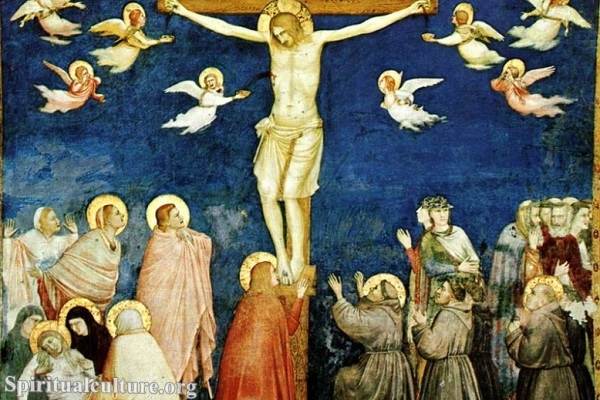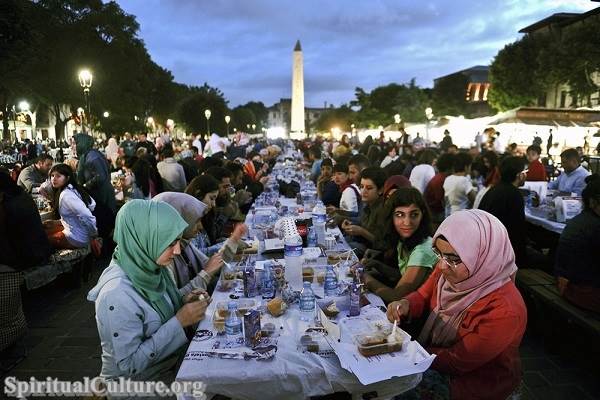With over two billion adherents worldwide, it has profoundly influenced culture, morality, politics, and philosophy across diverse societies.

In this article, Spiritual Culture will delve into Christianity’s origins, its foundational beliefs and doctrines, the importance of its sacred texts, the various denominations that exist today, the practices and rituals observed by its followers, its societal influence, and the challenges and opportunities the faith faces in the modern world.
Origin and Historical Background of Christianity
Christianity originated in the 1st century CE, in the context of the Roman Empire and the ancient Jewish religion. Understanding this origin is crucial for appreciating the development and adaptability of Christian belief and practice over time.
Key Figures in Early Christianity
- Jesus Christ: The figure at the heart of Christianity, Jesus of Nazareth, is seen as the promised Messiah and the Son of God. His life and teachings are recorded in the four Gospels of the New Testament: Matthew, Mark, Luke, and John. Jesus preached a message of love, repentance, compassion, and the Kingdom of God. He performed miracles, gathered disciples, and challenged the religious authorities of his time, ultimately leading to his crucifixion around 30–33 CE. Central to Christianity is the belief in his resurrection, which signifies victory over sin and death.
- The Apostles: Followers of Jesus, especially the Apostles, were instrumental in spreading his teachings after his death. Notably, Peter and John were key figures in the early Christian community in Jerusalem. Paul, originally known as Saul of Tarsus, became a major proponent of the faith, writing numerous letters (epistles) that shaped Christian theology and practice. His missionary journeys throughout the Mediterranean established many early Christian communities, helping the movement grow significantly beyond its Jewish roots.
- Early Church Fathers: After the Apostolic Age, several theologians, known as the Church Fathers, played critical roles in the formation of early Christian doctrine and church organization. Prominent figures include Augustine of Hippo, whose writings on sin and grace shaped Western Christianity, and Athanasius, who defended the Nicene Creed and the doctrine of the Trinity against various heresies.
Development of Christian Theology
From its inception, Christianity grappled with fundamental theological questions. The early church navigated issues of Christ’s nature, scriptural authority, and the role of faith and works in salvation. This theological journey included the following key developments:
- Apostolic Succession: Early Christians believed that church authority was derived from the Apostles, leading to the establishment of a hierarchy often represented in terms of bishops and presbyters. This resulted in a structured church governance that laid the groundwork for future systems of leadership.
- Creeds and Councils: Significant meetings known as ecumenical councils were convened to address theological disputes. The First Council of Nicaea in 325 CE produced the Nicene Creed, affirming the belief in the Trinity and the divinity of Christ. These theological formulations helped unify the early church and set boundaries against heretical beliefs.
- Development of Scripture: The process of canonization of the New Testament texts took several centuries. Early church leaders discerned which writings were divinely inspired, ultimately forming the 27 books we recognize today. The process involved debates over various texts, including the role of apostolic authorship and orthodox theological consistency.
Christianity in the Roman Empire
The expansion of Christianity occurred within the context of the Roman Empire, which initially viewed Christians with suspicion. Several factors facilitated the religion’s growth:
- Geographic Spread: The Roman Empire’s extensive road systems and communication channels allowed early Christians to travel and spread their message efficiently. Cities like Antioch and Rome became pivotal Christian centers.
- Cultural Exchange: A common language (Koine Greek) and a relative degree of religious pluralism created an environment in which new ideas could be shared and debated. Christians often engaged with philosophical traditions, making their message relatable to diverse audiences.
- Persecution and Martyrdom: In its early years, Christianity faced persecution from Roman authorities who saw it as a threat to the traditional religious and social order. Notable persecutions occurred under emperors such as Nero and Diocletian. However, these persecutions often strengthened the faith; the accounts of martyrs inspired others to convert.
- Constantine and the Edict of Milan: A turning point for Christianity occurred in the early 4th century when Emperor Constantine converted to Christianity. The Edict of Milan in 313 CE legalized Christianity and granted it the same legal status as other religions. This shift allowed Christianity to flourish and led to its adoption as the state religion of the Roman Empire by the end of the 4th century.
Major Beliefs and Doctrines
Central to Christianity are beliefs that define the faith and guide the actions and morals of its adherents. Understanding these principles is crucial for grasping the essence of Christian life and theology.
The Nature of God in Christianity
Christians believe in one God who exists as a Trinity, comprising three distinct persons in one divine essence:
- God the Father: The creator of the universe, God the Father is often associated with themes of sovereignty and providence.
- God the Son (Jesus Christ): Christians believe Jesus is fully divine and fully human. His incarnation, teachings, and sacrificial death are fundamental to redemptive history.
- God the Holy Spirit: The Holy Spirit is viewed as the active presence of God in the world today. He empowers and guides believers, convicts them of sin, and equips the church for ministry.
This Trinitarian view of God distinguishes Christianity from Islam and Judaism, which reject the idea of a triune God.
The Life and Teachings of Jesus Christ
The life of Jesus is central to Christianity. Key elements of his ministry include:
- The Kingdom of God: Jesus preached about the coming Kingdom of God, emphasizing its spiritual nature and ethical implications. His parables often illustrated this concept, teaching about justice, mercy, and compassion.
- Moral Teachings: Jesus’s Sermon on the Mount is a cornerstone of Christian ethics, presenting radical ideas such as love for enemies, forgiveness, and humility. These teachings challenge followers to live out the values of the Kingdom in their daily lives.
- Miracles: The Gospels recount numerous miracles performed by Jesus, from healing the sick to feeding thousands, which are interpreted as signs of his divine authority and compassion.
- The Passion: The narrative of Jesus’s arrest, crucifixion, and resurrection is the heart of the Christian faith. His sacrificial death is understood as atonement for human sin, and his resurrection affirms the hope of eternal life for believers.
Salvation and Redemption
The concept of salvation is pivotal in Christian belief, encompassing several key ideas:
- Original Sin: Stemming from Adam and Eve’s disobedience, original sin is the belief that humanity is inherently imperfect and in need of redemption.
- Atonement through Christ: Central to Christian doctrine is the belief that Jesus’s death atones for the sins of humanity. This redemptive act restores the relationship between God and humankind, which sin had fractured.
- Faith and Grace: Salvation is viewed as a gift from God, received through faith in Jesus Christ. This belief emphasizes grace—unmerited favor from God—rather than human effort or good works as the means of salvation.
- Eternal Life: Christians believe in the promise of eternal life for those who trust in Christ, a fundamental hope that provides purpose and direction for believers.
The Role of the Holy Spirit
The Holy Spirit has a vital and active role in the life of the church and individual believers:
- Indwelling: Christians believe the Holy Spirit resides in every believer, empowering them to live according to God’s will and bear spiritual fruit.
- Guidance and Conviction: The Holy Spirit provides guidance in understanding scripture, making moral choices, and witnessing to others about Christ.
- Gifts of the Spirit: The Bible lists various spiritual gifts (e.g., teaching, healing, prophecy) given to believers for the edification of the church and the fulfillment of its mission.
Sacred Texts and Scriptures
Christianity’s sacred scriptures provide guidance, history, and theological foundations for its beliefs and practices.
The Bible: Structure and Significance
The Christian Bible consists of two main sections: the Old Testament, which is sacred to both Jews and Christians, and the New Testament, which is uniquely Christian.
- The Old Testament: Comprised of texts written before the birth of Christ, the Old Testament includes historical narratives (e.g., Genesis, Exodus), laws (e.g., Leviticus), wisdom literature (e.g., Psalms, Proverbs), and prophetic writings (e.g., Isaiah, Jeremiah). These texts lay the foundation for understanding God’s covenant with Israel and the prophetic foreshadowing of Jesus.
- The New Testament: It includes the four Gospels, Acts, letters (epistles) from apostles such as Paul, James, Peter, and John, and Revelation. The New Testament focuses on the life of Jesus, the early church’s growth, and theological teachings that guide believers.
The Old Testament vs. New Testament
The relationship between the Old and New Testaments is crucial to Christian theology:
- Covenant: The Old Testament outlines God’s covenant with Israel, emphasizing law and obedience. The New Testament introduces a new covenant through Jesus, characterized by grace and the internalization of God’s laws.
- Fulfillment of Prophecy: The New Testament often cites Old Testament prophecies to affirm Jesus as the promised Messiah, demonstrating continuity in God’s redemptive plan.
Other Important Christian Writings
Beyond the Bible, early Christian writings significantly shaped the faith:
- The Apostolic Fathers: Works by early church leaders, such as Ignatius of Antioch and Clement of Rome, provide insights into the beliefs and practices of the early church.
- Creeds and Confessions: These documents encapsulate central doctrines and have been pivotal in defining Christian orthodoxy. The Nicene Creed, Apostles’ Creed, and Reformed confessions serve as benchmarks of shared faith.
- Modern Theological Literature: Contemporary writers continue to contribute to Christian thought, addressing issues such as ethics, social justice, and the integration of faith and science.
Denominations and Branches of Christianity
Christianity is not a monolithic faith; it encompasses a diverse array of denominations and movements, each interpreting beliefs and practices in unique ways.
Overview of Major Christian Denominations
- Catholicism: The Roman Catholic Church is the largest Christian denomination, led by the Pope in Rome. It emphasizes tradition, the sacraments, and the authority of the church. The Mass, rooted in the Eucharist, is central to Catholic worship.
- Orthodoxy: Comprised of Eastern Orthodox Churches, Orthodoxy emphasizes mysticism, liturgical worship, and the continuity of tradition. The Divine Liturgy is a hallmark of Orthodox worship, characterized by rich rituals and sacraments.
- Protestantism: Emerging from the Reformation in the 16th century, Protestantism covers a broad spectrum, including denominations such as Lutheran, Reformed, Anglican, Baptist, and Pentecostal. Common themes include the authority of scripture, justification by faith, and the priesthood of all believers.
Differences Between Catholicism, Orthodoxy, and Protestantism
While all Christians share core beliefs, substantial differences exist in theology, worship, and practices:
- Authority: Catholics uphold papal authority, with the Pope as the spiritual leader. Orthodox Christians rely on ecumenical councils and the consensus of bishops, whereas Protestants prioritize scripture as the sole authority (sola scriptura).
- Sacraments: Catholicism recognizes seven sacraments, the Orthodox tradition also emphasizes the sacraments, whereas most Protestant denominations typically recognize only Baptism and the Eucharist.
- Salvation: While all denominations affirm that salvation comes through faith in Christ, differences arise regarding the role of works, sacraments, and faith alone versus faith with accompanying deeds.
Emerging Christian Movements
In recent years, new movements and expressions of Christianity have emerged, reflecting cultural changes and shifts in belief:
- Non-Denominational Christianity: Many Christians identify with non-denominational churches that emphasize a personal faith experience over traditional denominational structures.
- Megachurches: Large congregations offering diverse programs have gained popularity in the U.S. and elsewhere. These churches often focus on contemporary worship styles and practical life applications.
- Social Justice Movements: Many contemporary churches actively engage in social issues, linking faith with activism on matters like poverty, racial equality, and environmental stewardship. Organizations such as the “Emergent Church” movement call for a rethinking of how Christianity addresses these pressing concerns.
Practices and Rituals in Christianity
The practices and rituals within Christianity are expressions of belief and devotion that foster community and individual spirituality.
Traditional Sacraments: Baptism and Eucharist
- Baptism: Seen as an initiation into the Christian faith, baptism symbolizes a believer’s identification with Christ’s death and resurrection and signifies moral and spiritual rebirth. Different denominations varying in beliefs about infant vs. adult baptism and the mode of baptism (immersion, pouring, or sprinkling).
- Eucharist (Holy Communion): A central act of worship for Christians, the Eucharist commemorates Jesus’s Last Supper with his disciples. The significance of the Eucharist varies, with Catholicism believing in transubstantiation (the bread and wine become the actual body and blood of Christ) and many Protestant denominations considering it a memorial or symbolic meal.
Worship and Prayer Practices
Christian worship encompasses various styles and settings, reflecting cultural contexts and theological emphases:
- Sundays and Liturgical Calendars: Most Christians worship on Sundays, often observing a church calendar that includes significant seasons such as Advent, Lent, Easter, and Pentecost, which punctuate the rhythms of worship and reflection.
- Worship Styles: Worship can range from traditional liturgy, with structured prayers, hymns, and readings, to contemporary services featuring modern music and informal settings. This diversity allows individuals to connect with their faith in various ways.
- Prayer: Prayer plays a crucial role in Christian life, encompassing both personal and communal practices. Common forms include intercessory prayer, contemplative prayer, and the recitation of formal prayers such as the Lord’s Prayer.
Significance of Church Community
The church is essential to Christian identity, providing a space for communal worship, spiritual growth, and mutual support:
- Fellowship and Community: Christians are encouraged to share their faith journeys, support one another, and engage in acts of service. This communal aspect reflects Jesus’s teachings on love and charity.
- Education and Discipleship: Many churches prioritize education through Bible studies, Sunday school, and catechesis to equip believers for spiritual maturity and engagement in their communities.
- Service and Outreach: Many congregations participate in community service initiatives, demonstrating the call to live out the Gospel through tangible acts of love and service.
Christianity’s Influence on Society and Culture
Christianity’s impact on society is profound and multifaceted, influencing art, law, education, and ethical standards throughout history.
Historical Impact on Western Civilization
Christianity profoundly shaped Western history and culture:
- Art and Literature: Major works of art, music, and literature throughout history have drawn from Christian themes. Artists like Michelangelo and composers like Bach exemplify how Christian belief inspired creativity.
- Legal and Ethical Frameworks: Christian thought has influenced laws and ethical norms in many Western societies, shaping views on justice, mercy, and the dignity of human life.
- Education: The establishment of medieval universities and schools often stemmed from missionary efforts and church sponsorship, emphasizing the pursuit of knowledge through the lens of faith.
Christianity and Modern Social Issues
In the contemporary world, Christianity engages with pressing social issues, reflecting its commitment to justice and compassion:
- Poverty and Inequality: Many Christian organizations work to alleviate poverty, promote fair economic practices, and provide services to marginalized communities. This includes addressing systemic injustices through advocacy.
- Environmental Stewardship: Increasingly, Christians focus on caring for creation, advocating for environmental justice, and responding to climate change. Various movements emphasize the theological basis for stewardship of the Earth.
- Human Rights: Christian teachings often emphasize the inherent dignity of all individuals, leading many believers to engage in human rights activism, including issues of racial and gender equality.
Interfaith Relations and Ecumenism
Christianity exists alongside a multitude of other faiths, leading to increased dialogue and cooperation among different religions:
- Dialogue with Other Religions: Many Christian groups actively pursue interfaith dialogue, seeking mutual understanding and respect with Jews, Muslims, and other religious traditions.
- Ecumenism: Within Christianity, ecumenical movements aim to promote unity among different denominations. Organizations like the World Council of Churches foster collaboration and shared mission work, emphasizing the common good of humanity.
Future of Christianity
Christianity faces an evolving landscape marked by opportunities for growth and challenges rooted in cultural shifts.
Growth Trends and Global Distribution
While Christianity originated in the Middle East, it has spread globally, with significant growth occurring in:
- Africa and Asia: The number of Christians has grown rapidly in these regions, where many embrace Christianity for its message of hope and community, often blending traditional beliefs with Christian faith.
- Urbanization: Cities are becoming significant centers of Christianity, presenting opportunities for innovative expressions of faith and ministry.
Challenges Facing Christianity Today
Modern Christians face a range of challenges:
- Secularization: In many Western nations, secularism is on the rise, leading to decreased church attendance and challenges to traditional beliefs. Christians often grapple with how to faithfully engage in a post-Christian society.
- Internal Divisions: Differences in interpretation, cultural responses, and political stances can create rifts within Christianity. Addressing these divisions requires open dialogue, humility, and a focus on shared beliefs.
- Crisis of Authority: Many believers struggle with authority in church leadership. Scandals and controversies have led to questions about trust and accountability within Christian institutions.
Role of Technology in Modern Christian Practice
Advancements in technology are reshaping how Christians engage with their faith and community:
- Digital Worship: The COVID-19 pandemic accelerated the trend toward online worship services, making it easier for churches to reach individuals who may not attend traditional services. Many congregations now offer live-streamed services and resources that cater to a digital audience.
- Social Media and Outreach: Christians are increasingly using social media platforms to share their faith, engage in discussions, and connect with others. This digital outreach opens new avenues for evangelism and community building.
- Resources and Education: Technology allows access to a wealth of educational materials, podcasts, and online scripture studies, enabling believers to deepen their understanding of faith in various formats and settings.
Conclusion
Christianity, with its extensive historical roots, diverse beliefs, and evolving practices, continues to hold significant relevance in the global context. From its inception as a small sect in 1st-century Judea to its current status as a major world religion, Christianity has profoundly impacted millions of lives across different cultures.
In a world marked by rapid change, Christians are called to engage thoughtfully with contemporary issues, embody their faith through action, and seek unity amidst diversity. The core message of love, redemption, and hope remains a guiding light, inviting individuals to explore and embrace the transformative power of faith in their lives and communities. Understanding Christianity not only illuminates its principles and practices but also offers insights into the broader responsibility of faith in addressing the complexities of the human experience, fostering dialogue, and promoting a just and compassionate world.
This detailed examination of Christianity underscores its rich tradition and its ongoing relevance in an increasingly interconnected and diverse world. Through understanding its origins, beliefs, practices, and impact, individuals and societies can better appreciate the depth and breadth of this multifaceted faith as they navigate the challenges and possibilities of modern life.



